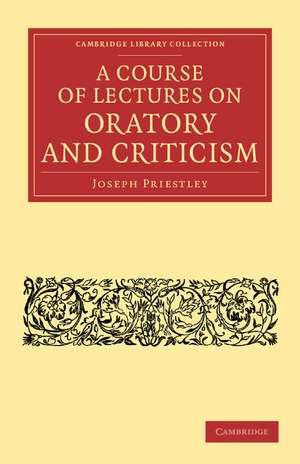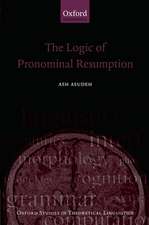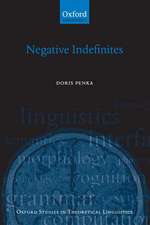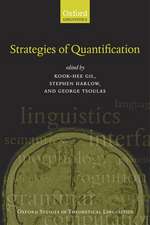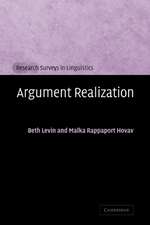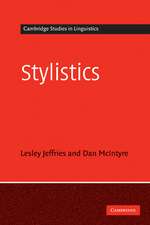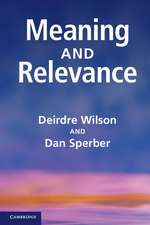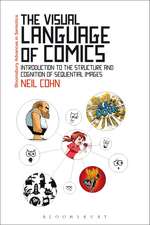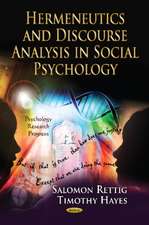A Course of Lectures on Oratory and Criticism: Cambridge Library Collection - Linguistics
Autor Joseph Priestleyen Limba Engleză Paperback – 23 oct 2013
Din seria Cambridge Library Collection - Linguistics
- 19%
 Preț: 663.79 lei
Preț: 663.79 lei -
 Preț: 282.17 lei
Preț: 282.17 lei -
 Preț: 238.95 lei
Preț: 238.95 lei - 19%
 Preț: 564.51 lei
Preț: 564.51 lei -
 Preț: 291.76 lei
Preț: 291.76 lei - 19%
 Preț: 741.52 lei
Preț: 741.52 lei -
 Preț: 420.82 lei
Preț: 420.82 lei -
 Preț: 367.33 lei
Preț: 367.33 lei - 19%
 Preț: 452.97 lei
Preț: 452.97 lei -
 Preț: 246.93 lei
Preț: 246.93 lei -
 Preț: 267.70 lei
Preț: 267.70 lei -
 Preț: 286.59 lei
Preț: 286.59 lei -
 Preț: 369.83 lei
Preț: 369.83 lei -
 Preț: 382.40 lei
Preț: 382.40 lei -
 Preț: 524.08 lei
Preț: 524.08 lei -
 Preț: 371.96 lei
Preț: 371.96 lei -
 Preț: 289.86 lei
Preț: 289.86 lei - 19%
 Preț: 534.41 lei
Preț: 534.41 lei -
 Preț: 426.21 lei
Preț: 426.21 lei -
 Preț: 330.16 lei
Preț: 330.16 lei - 19%
 Preț: 459.36 lei
Preț: 459.36 lei -
 Preț: 371.96 lei
Preț: 371.96 lei -
 Preț: 329.98 lei
Preț: 329.98 lei - 19%
 Preț: 506.74 lei
Preț: 506.74 lei -
 Preț: 341.96 lei
Preț: 341.96 lei -
 Preț: 222.84 lei
Preț: 222.84 lei -
 Preț: 476.46 lei
Preț: 476.46 lei - 19%
 Preț: 465.44 lei
Preț: 465.44 lei -
 Preț: 314.61 lei
Preț: 314.61 lei -
 Preț: 240.89 lei
Preț: 240.89 lei -
 Preț: 334.78 lei
Preț: 334.78 lei -
 Preț: 366.37 lei
Preț: 366.37 lei -
 Preț: 473.66 lei
Preț: 473.66 lei - 19%
 Preț: 535.82 lei
Preț: 535.82 lei - 19%
 Preț: 439.74 lei
Preț: 439.74 lei -
 Preț: 465.60 lei
Preț: 465.60 lei -
 Preț: 240.12 lei
Preț: 240.12 lei
Preț: 369.83 lei
Nou
Puncte Express: 555
Preț estimativ în valută:
70.77€ • 73.89$ • 58.57£
70.77€ • 73.89$ • 58.57£
Carte tipărită la comandă
Livrare economică 04-18 aprilie
Preluare comenzi: 021 569.72.76
Specificații
ISBN-13: 9781108066075
ISBN-10: 1108066070
Pagini: 396
Dimensiuni: 140 x 216 x 22 mm
Greutate: 0.5 kg
Editura: Cambridge University Press
Colecția Cambridge University Press
Seria Cambridge Library Collection - Linguistics
Locul publicării:Cambridge, United Kingdom
ISBN-10: 1108066070
Pagini: 396
Dimensiuni: 140 x 216 x 22 mm
Greutate: 0.5 kg
Editura: Cambridge University Press
Colecția Cambridge University Press
Seria Cambridge Library Collection - Linguistics
Locul publicării:Cambridge, United Kingdom
Cuprins
Dedication; Preface; Part I: 1. The introduction; 2. Of the nature and use of topics; 3. Of universal topics; 4. Of particular topics; 5. Of amplification; Part II: 6. Of method in narrative discourses; 7. Of method in argumentative discourses; 8. Of the several parts of a proper demonstration; 9. Of the analytical method; 10. Of the method of Mr Hume's inquiry into the principles of morals, etc.; Part III: 11. Of taste; 12. What affects the passions, judgment, and imagination; 13. Of the tendency of strong emotions to produce belief; 14. Of the influence of the passions on each other; 15. Of forms of address adapted to gain belief; 16. Of objections, etc.; 17. Of the pleasures of imagination; 18. A general account of the pleasure we receive from objects; 19. Of novelty; 20. Of the sublime; 21. Of the pleasure we receive from uniformity, and variety; 22. Of the nature of metaphors; 23. Rules for the use of metaphors; 24. Of contrast; 25. Of burlesque etc.; 26. Of riddles, puns, etc.; 27. Of metoymy; 28. Of the hyperbole and bombast; 29. Of personification; 30. Of imitation; 31. Of climax; 32. Of perspicuity in style; 33. Of the resemblance between sound and sense; 34. Of harmony in verse; 35. Of harmony in prose.
Descriere
Priestley integrates classical rhetorical principles with contemporary theories of mind in this lecture series, reissued here in its 1781 printing.
